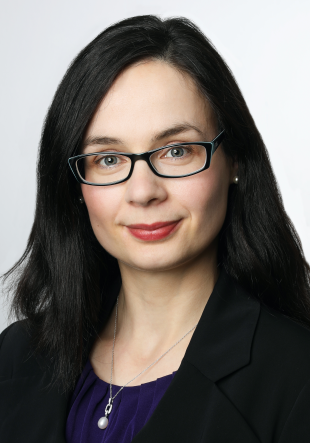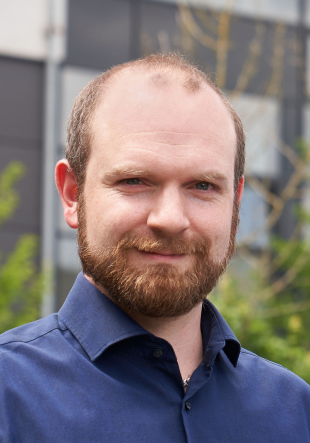Paderborn University is expanding its range of degree programmes: With "German as a Second and Foreign Language for Vocational and Specialist Studies" and "Additive Manufacturing" - i.e. 3D printing - two new Master's degree programmes will be available from the coming winter semester 2025/2026. The subject of technology for the teaching profession at Hauptschule, Realschule, Sekundarschule and Gesamtschule (HRSGe) and for the teaching profession at Gymnasium and Gesamtschule (GyGe) can now also be studied in the Bachelor's and Master's programmes. Also new: the subject area of psychology for the teaching profession at vocational colleges and grammar schools/comprehensive schools can be studied in the Master's programme from October. Previously, this was only possible in the Bachelor's programme. Something is also happening in terms of future orientation: "Mechanical Engineering" will become "Sustainable Mechanical Engineering" in the Bachelor's and Master's degree programmes. Enrolments are now possible. All information on the Paderborn University degree programmes can be found here.
German as a second and foreign language
Whether language policy, education management or the teaching and learning of German in adult education: The subject areas and career prospects on the newly established Master's degree programme "German as a Second and Foreign Language for Professional and Specialist Studies" are diverse. Students deal with German as a second and foreign language (DaZ/DaF) in the classroom and other language acquisition and utilisation situations. This is because language skills play a central role in participation in social practices and discourses, vocational training, studies and gainful employment - especially in times of generative AI tools. For this reason, the degree programme professionalises the teaching and research of German in institutional and non-institutional contexts under the conditions of multilingualism. "A degree programme like this is unique in Germany," says Dr Mareike Müller, who is responsible for coordinating it.
A special feature of the programme is the close integration of theory, empirical research and practical application. Students gain comprehensive insights into the scientific principles, findings and methodological approaches of second and foreign language research. They learn how to plan, carry out and critically reflect on their own research and teaching activities. By choosing courses and project topics as well as organising their internship, they can set their own priorities and prepare themselves for various fields of activity characterised by multilingualism. "The degree programme is therefore also interesting for people who would like to work abroad, for example to prepare people there for a job in Germany or to teach German in different contexts. Against the background of the current shortage of skilled workers, there is a high demand in Germany - for example in hospitals - for staff from abroad who need to learn German as a foreign language. The programme is also aimed at Bachelor's graduates who have studied to become teachers but don't necessarily want to teach in schools," says Müller.
Sustainable mechanical engineering
The established "Mechanical Engineering" degree programme will become "Sustainable Mechanical Engineering" from the winter semester 2025/26. With the new accreditation, the programme's long-standing focus on sustainability in engineering is now also reflected in its name. The faculty already offers numerous courses on topics such as plastics recycling, energy technology and "blue engineering", i.e. the special responsibility of engineers towards social, ethical and ecological aspects. In many other courses, sustainability topics are also becoming more central, for example in materials science, mobility, design, data management and additive manufacturing. In addition, new courses are being created to respond to trends such as sector coupling, chemical storage, smart city, data-driven resource management, circular economy and sustainable product development. In addition, a new specialisation (VTR) deals with future-oriented energy technology and transformation issues for sustainable production and products. Graduates design and implement environmentally friendly solutions.
As before, the degree programme teaches the mathematical, scientific and engineering fundamentals required to classify, follow and help shape new technical developments. In addition, programming skills, data science and its sub-area of machine learning have become indispensable in modern industrial contexts and are therefore also part of the programme. The degree programme offers a total of eight possible specialisations. Graduates are therefore qualified for a wide range of technical activities and have good chances of finding attractive and exciting jobs in the future, regardless of the industry. Thanks to the modern focus of the degree programme, they are able to take current challenges into account and make an important contribution to shaping our future.
Additive Manufacturing
Paderborn University is sharpening its international profile with the English-language Master's degree programme in Additive Manufacturing. Students acquire in-depth knowledge of modern additive manufacturing, also known as 3D printing. Among other things, they learn about various methods and materials as well as design techniques in the fields of metal and plastics. Skills in materials science, design and process optimisation are also applied and developed in the form of practical projects with industry partners. Students benefit from the Faculty of Mechanical Engineering's unique research focus in this field. A modern infrastructure and cutting-edge teaching round off the programme. Acquired knowledge can be deepened in a variety of basic and application-oriented projects.
"The new degree programme, which is deliberately aimed at interested students from all over Germany and internationally, trains highly qualified specialists in this modern field of the future," says Prof. Dr. Hans-Joachim Schmid, who is responsible for coordinating the degree programme. Graduates can use their acquired skills to solve particularly demanding tasks in the field of additive manufacturing with the help of engineering tools. The field of activity ranges from research and development to strategic product planning.
This text was translated automatically.




